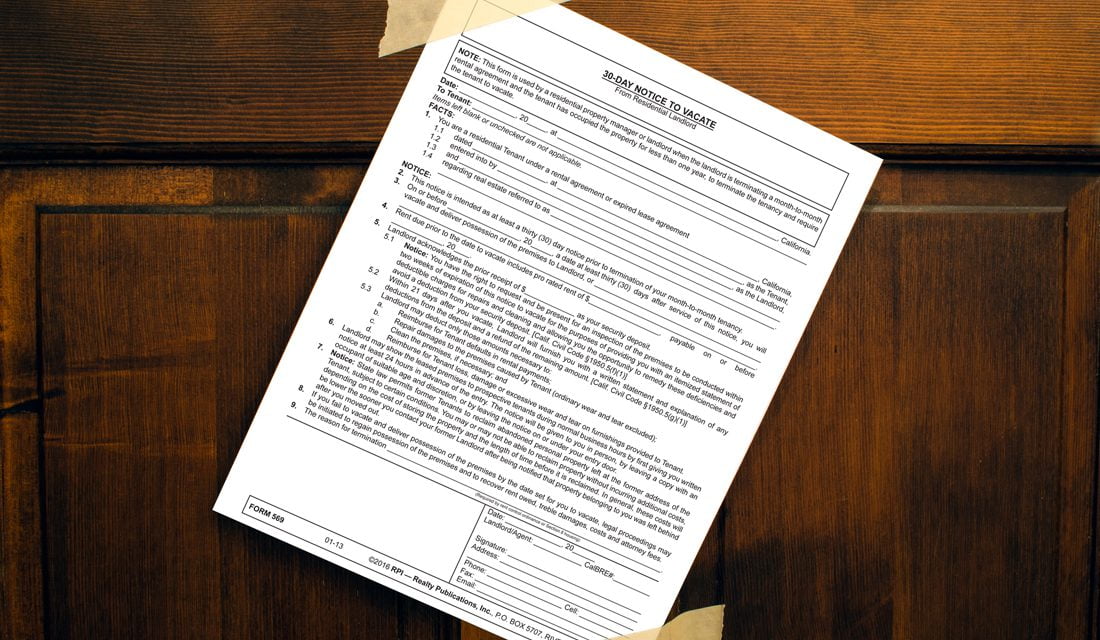Will California's rental eviction moratorium help or hinder real estate sales volume?
- Hinder. (55%, 16 Votes)
- Help. (31%, 9 Votes)
- It won't make a difference. (14%, 4 Votes)
Total Voters: 29
Residential evictions are effectively prohibited through the end of 2020. This occurred at the national level after orders from the Centers for Disease Control (CDC) and the U.S. Department of Housing and Urban Development (HUD). The HUD moratorium covers homeowners of single family residences (SFRs) and their renters, staving off foreclosure for those unable to pay.
Here in California, evictions have been halted for tenants unable to pay rent specifically due to COVID-19 restrictions through January 31, 2020.
While necessary for the sake of public health, these eviction moratoriums have deep implications for the real estate market and broader economy. As the moratoriums apply to millions of tenants across the country, the landlords unable to collect rents are quickly feeling the losses.
The Mortgage Bankers Association (MBA) released a statement warning against the widening impacts the moratoriums will have, particularly on multi-family property owners. They caution against a “cascading action” of losses as tenants who are unable to pay will lead to landlords unable to cover their own expenses and mortgage payments, pay their employees or pay their property taxes.
The MBA implores policymakers to pass another relief package that provides rental assistance to tenants and their landlords. At stake is the stability of the multi-family industry and finance market, which relies heavily on multi-family investment.
Related article:
Until jobs return
While the eviction moratorium is necessary for the sake of tenants’ health and safety — not to mention local governments’ infrastructure, which is ill equipped to handle a surge of homelessness — it is a band-aid solution to the bigger problem.
Tenants in need of assistance are those who have lost jobs due to the 2020 recession and pandemic. There are 1.6 million fewer jobs held in California than a year earlier, as of August 2020. This amounts to a 9% annual decrease in jobs. An unequal balance of these lost jobs are low-paying jobs, which disproportionately effect renters.
Jobs are the key that keeps the economy — and real estate market — moving.
A decline in the number of local jobs reduces the need for all types of real estate, residential and commercial alike. Normally, decreased demand leads to vacancies, which means lower rents paid by tenants and lower prices paid by buyers.
However, landlords are left without remedies when tenants are able to continue occupying rentals without compensating them. They are unable to fill vacancies by decreasing asking rent on the impacted units since these nonpaying units remain occupied.
To keep landlords from defaulting on their obligations and laying off staff — creating more job losses — the tenant eviction moratorium needs to be paired with assistance for landlords while the economy gradually recovers the many jobs lost in 2020.
In the meantime, job creation is imperative. Government stimulus is needed to help private businesses create more jobs as well as federal initiatives to hire more infrastructure workers. Otherwise, the jobs recovery will be slow and long, reminiscent of the last decade of recovery from the Great Recession.
Related page:
















The author, Carrie, fails to provide the details required of the CDC for a tenant to have an extended moratorium protection, beyond the expired state deadline.
The CDC requires tenants to apply for, and be approved for, the federal CDC extension.
The CDC extension, if approved and issued, will be sent to the Landlord in writing from the CDC.
If you have nothing in writing, there is no applicable federal extension and the state deadline applies. Additionally, for consideration, tenants that have paid rents during COVID, are not protected by the “eviction moratorium” anyway.
Eviction has its own legal definition, unlawful detainer, which is not initiated automatically because of unpaid rents.
Given a tenant that has paid some or all rents, and the Landlord has not initiated any eviction procedures/actions, tenants are subject to their valid contract with their Landlord first and foremost.
Given a month-to-month rental agreement situation, and/or any Lease less than 12 months, a Landlord can choose to not to mutually agree to renew the agreement at the end of the agreement period and provide Notice to Vacate in 30 days.
COVID languages and political gestures are not applicable and unenforceable, thus any subsequent federal (CDC) extension (which must be applied for and approved) is/has not been applicable.
Unlawful detainer at that point is a separate issue from any moratorium gestures and would still not qualify for any federal extension application without previous apparent and documented need.
Take action to not mutually agree to extend the rental agreement period.
Food for thought.
how do you vote?
No, it was not necessary. As usual when the government interferes with the free market, chaos in sues Those that could not pay their rent should have been made to vacate the properties. There is a rental shortage right now so the vacancies would have been filled, the landlords would still have most of their rent monies and the banks would still be paid. That is the opposite of what happened and now look at the long term ramifications.